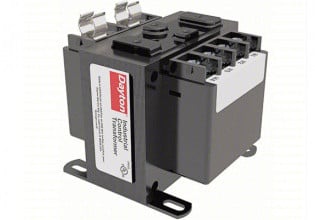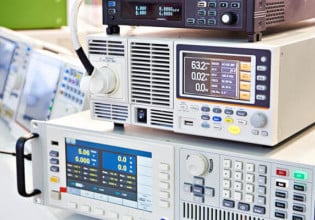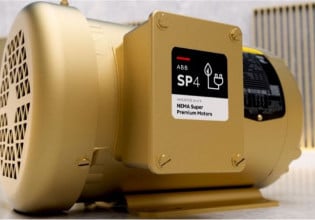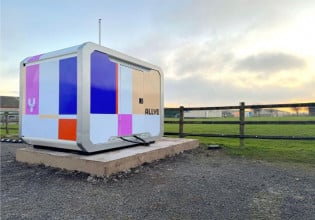Innovations in Satellite Testing and Particle Acceleration
A look at recent advancements in power technology, from the UK's largest satellite test chamber to the cutting-edge Scorpius particle accelerator.
No matter how much technology progresses or what new applications emerge, power electronics remain a fundamental part of all electronic devices. From the simplest household gadgets to the most complex scientific instruments, there’s no denying the importance of the underlying power system.
The largest space test chamber in the UK. Image used courtesy of PPM Power
Recent innovations have highlighted this truth in cutting-edge scientific testing equipment. This article will examine two novel scientific devices and their underlying power electronics, exploring the technical specifications and the broader implications of power technology. Between a new high-speed X-ray particle accelerator and a thermal vacuum chamber for testing satellites, we’ll see that power electronics are vital to any system’s design.
PPM Provides Power for UK's Largest Satellite Test Chamber
RAL Space, the UK's national space laboratory, has introduced a thermal vacuum chamber for testing satellites. The thermal vacuum chamber, the largest of its kind in the country, is part of RAL Space's National Satellite Test Facility and will be used to simulate and test in the vacuum and thermal conditions of deep space.
From a power electronics perspective, this new chamber will be powered by units supplied by the UK’s PPM Power. Best known as a specialist distributor of high-voltage components, PPM Power will provide the chamber with TDK-Lambda UK Genesys+ half-rack power supplies. These were chosen due to their combination of power and area, reflecting a trend towards more compact and efficient power solutions.
Within the family, the Genesys half rack supplies can reach up to 780 W of power, a maximum current drive of up to 100 A, and output voltages up to 600 V. Notably, these power supplies are said to be half of the size of traditional solutions, allowing 140 half rack units to fit into the available volume within the chamber. This innovation enhances the UK's capabilities in satellite technology and sets a precedent for future developments in space exploration and testing.
Magna-Power Selected for Scorpius Particle Accelerator
In other interesting news, New Jersey-based Magna-Power Electronics has been selected to provide DC power supplies for an underground particle accelerator.
The particle accelerator, Scorpius, is being developed by Los Alamos National Laboratory and is expected to be ready by 2027. The accelerator will be a 300-foot-long linear induction accelerator that will generate high-energy electron beams, which will be converted into X-rays. The X-rays will create high-speed images of subcritical experiments, contributing to understanding nuclear reactions and material behaviors.
Magna-Power’s TS Series. Image used courtesy of Magna-Power
Such a powerful application requires specialized power supplies, which Magna-Power will provide as their TS Series programmable DC power supplies. At its maximum ratings, the power supplies can provide an output voltage of 6000 Vdc, an output current of 8000 Adc, and an output power of 100 kW. Magna-Power will be supplying 125 of these supplies for the project.
Notably, Magna-Power was required to redesign its supplies to meet stringent requirements surrounding the underground particle accelerator. Specifically, these requirements included the addition of a cooling water subsystem interface, DC bus bar compatibility, and hardening against potential radiation exposure.
The Importance of Power Electronics
The innovations in the UK's satellite test chamber and the Scorpius particle accelerator underscore the vital role of power electronics in modern technological advancements. From compact and efficient power supplies that enable precise simulation of space conditions to specialized and customized solutions for high-energy applications, power electronics are the hidden force behind cutting-edge scientific exploration.








